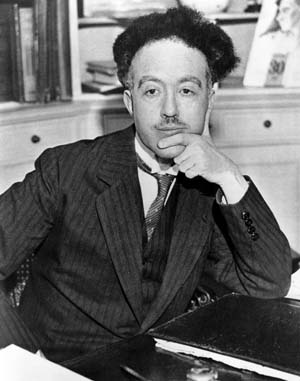Search Results - Broglie, Louis de
Louis de Broglie
 Louis Victor Pierre Raymond, 7th Duc de Broglie (, also ; or ; 15 August 1892 – 19 March 1987) was a French theoretical physicist and aristocrat known for his contributions to quantum theory. In his 1924 PhD thesis, he postulated the wave nature of electrons and suggested that all matter has wave properties. This concept is known as the de Broglie hypothesis, an example of wave-particle duality, and forms a central part of the theory of quantum mechanics. De Broglie won the Nobel Prize in Physics in 1929, after the wave-like behaviour of matter was first experimentally demonstrated in 1927.
Louis Victor Pierre Raymond, 7th Duc de Broglie (, also ; or ; 15 August 1892 – 19 March 1987) was a French theoretical physicist and aristocrat known for his contributions to quantum theory. In his 1924 PhD thesis, he postulated the wave nature of electrons and suggested that all matter has wave properties. This concept is known as the de Broglie hypothesis, an example of wave-particle duality, and forms a central part of the theory of quantum mechanics. De Broglie won the Nobel Prize in Physics in 1929, after the wave-like behaviour of matter was first experimentally demonstrated in 1927.The wave-like behaviour of particles discovered by de Broglie was used by Erwin Schrödinger in his formulation of wave mechanics. De Broglie presented an alternative interpretation of these mechanics call the pilot-wave concept at the 1927 Solvay Conferences then abandoned it. In 1952 David Bohm developed a new form of the concept which became known De Broglie–Bohm theory. De Broglie revisited the idea in 1956, creating another version that incorporated ideas from Bohm and Jean-Pierre Vigier.
Louis de Broglie was the sixteenth member elected to occupy seat 1 of the Académie française in 1944, and served as Perpetual Secretary of the French Academy of Sciences. De Broglie became the first high-level scientist to call for establishment of a multi-national laboratory, a proposal that led to the establishment of the European Organization for Nuclear Research (CERN). Among his publications were ''The Revolution in Physics'' and ''Matter and Light''. He was honorary president of the French Association of Science Writers and received the inaugural Kalinga Prize from UNESCO for his efforts to popularize science. Provided by Wikipedia
